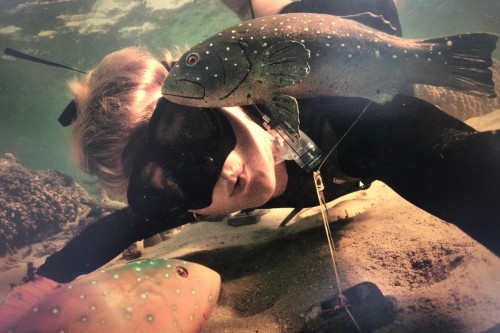This annual festival offers the public a chance to meet the people working at the cutting edge of research. Each postgraduate researcher has created a digital asset to share interactively that helps to explain their work in an accessible way.
Guests will be able to virtually wander through researcher tables meeting a mix of interesting people each with their own research story to tell.
Merihan Alhafnawi is one of the students taking part in the event. Her work, Mosaix: a swarm of robot tiles, can be accessed remotely at the Bristol Robotics Laboratory to create collective art with other users. The robots, called Tiles, are small, four-inch screens-on-wheels that users can move around and colour.
Merihan explained the meaning behind her research. She said: “Using a swarm of robots can be more efficient than using just one robot in applications like firefighting missions and environmental monitoring. A human interacting with one robot sounds complicated enough, so how about interacting with 100 robots? ‘Expressive swarms’ researches how humans can interact with a whole swarm of robots! If the robots can work together to express themselves in an intuitive and meaningful way to the humans, then the interactions become natural, almost like working with a friend.”
Isla Keesje Davidson’s project Hearing Nemo: How clownfish communicate to survive and thrive in a changing coral reef will offer visitors a chance to feel what it’s like to be immersed in water and explore what it means to have to make decisions, as a small clownfish, to respond to any imminent predator threat.
She said: “The world of a fish is far more complex than we humans might realise, many can hear a heartbeat, see UV markings and learn the scent of different predators. What does this mean as the oceans, and their coral reefs, are changing? It’s an exciting world to delve into.
“Clownfish live together in their anemone, using what they see, smell and hear to communicate with one another across a busy and often dangerous coral reef. They might be no bigger than a human hand, but they can be brave, they can be smart, and they use all the same senses we humans have - and more - to communicate with each other, helping each other make it through their underwater world.”
The showcase exhibition will take place live online via Remo, a simple to use online event platform from 10 am until 4pm.
This will be followed by an online project presentation from four talented postgraduate students that successfully applied for seed corn funding from the Jean Golding Institute or have been working with the Alan Turing Institute. They will showcase their data science projects and share the work that was funded, the impact and societal benefits.
Register for free at Eventbrite for the exhibition or here for the presentations.

.jpg)